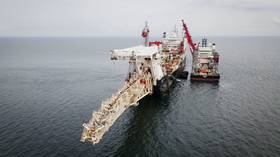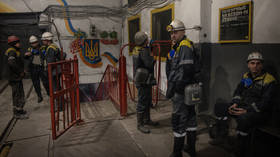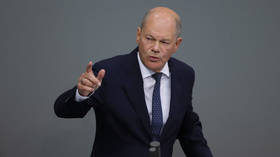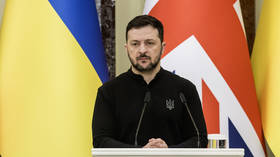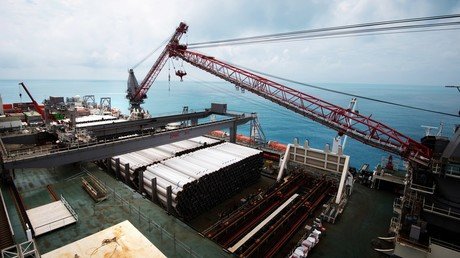Serbia greenlights expansion of Russia’s Turkish Stream gas pipeline

The Serbian energy regulator has given final approval for the construction of a branch of the Turkish Stream pipeline that will deliver Russian natural gas into Turkey as well as southern and southeastern Europe.
“On March 5 the Energy Agency of the Republic of Serbia made the final decision and responded positively to the Gastrans [company] statement for the implementation of the project,” the Serbian minister of mining and energy, Aleksandar Antic, announced on Thursday. He added that works on the Turkish Stream project, also known as TurkStream, are set to start in April.
Also on rt.com ‘Quite realistic’: Putin doesn’t rule out extending Turkish Stream pipeline into GreeceGastrans is responsible for laying the gas transportation branch from Bulgaria to Hungary. The company is owned by Swiss-based South Stream Serbia, of which Russia’s Gazprom holds a 51-percent stake. Serbian gas company Srbijagas holds the remaining 49 percent.
Earlier in the day, Serbian President Aleksandar Vucic noted the importance of implementing the gas pipeline project at a meeting with Russian Deputy Prime Minister Yury Borisov in Belgrade.
Russia and Turkey officially agreed on the Turkish Stream, which consists of two lines with annual capacity of 31.5 billion cubic meters, in October 2016. The first branch will deliver Russian natural gas directly to Turkey, while the second stretches to the Turkish-European border to reach European customers.
The project was created as an alternative to the South Stream route through Bulgaria, which ditched the pipeline project amid pressure from the EU and the US. On Thursday, Serbian Foreign Minister Ivica Dacic said he hopes the Turkish Stream will not share the fate of its predecessor.
“As far as we are concerned, the construction of the section from the Bulgarian border to the border with Serbia is being worked out at all levels, and we hope that it will not turn out as previously, and no country will withdraw from the project,” Dacic told reporters during a joint news conference with Borisov.
Another Russia-led energy project – the Nord Stream 2 gas pipeline from Russia to Germany under the Baltic Sea – has been under scrutiny from Washington and some European states. US President Donald Trump accused Berlin of being “captive to Russia,” and the US later threatened to sanction companies which participate in it, while pushing sales of its own liquefied natural gas (LNG) to Europe. Both Germany and Russia have repeatedly argued against the claims. Berlin has said it will not bow to pressure in determining its energy and security policies.
For more stories on economy & finance visit RT's business section
